To provide the best experiences, we use technologies like cookies to store and/or access device information. Consenting to these technologies will allow us to process data such as browsing behaviour or unique IDs on this site. Not consenting or withdrawing consent, may adversely affect certain features and functions.
The technical storage or access is strictly necessary for the legitimate purpose of enabling the use of a specific service explicitly requested by the subscriber or user, or for the sole purpose of carrying out the transmission of a communication over an electronic communications network.
The technical storage or access is necessary for the legitimate purpose of storing preferences that are not requested by the subscriber or user.
The technical storage or access that is used exclusively for statistical purposes.
The technical storage or access that is used exclusively for anonymous statistical purposes. Without a subpoena, voluntary compliance on the part of your Internet Service Provider, or additional records from a third party, information stored or retrieved for this purpose alone cannot usually be used to identify you.
The technical storage or access is required to create user profiles to send advertising, or to track the user on a website or across several websites for similar marketing purposes.
 New polling, carried out to mark the start of National Work Life Week (Oct 11–15), highlights a wide gulf in how working mothers, parents and carers are managing to balance their work and home lives as we come out of the pandemic. Outdated cultures and practices still hold sway in many workplaces around the UK. (more…)
New polling, carried out to mark the start of National Work Life Week (Oct 11–15), highlights a wide gulf in how working mothers, parents and carers are managing to balance their work and home lives as we come out of the pandemic. Outdated cultures and practices still hold sway in many workplaces around the UK. (more…)







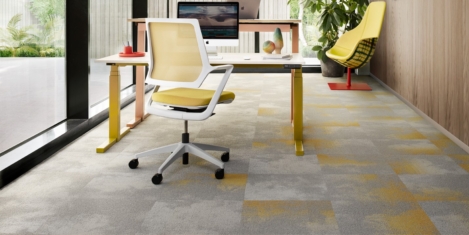
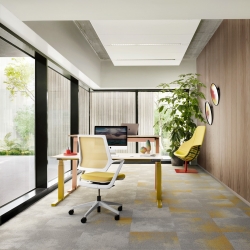
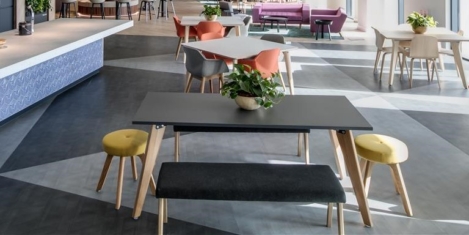
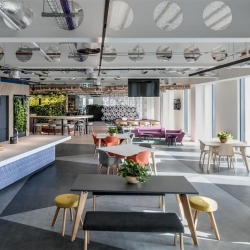
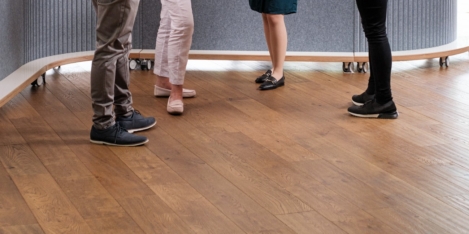




 Since offices reopened, there has naturally been a much greater focus on health and safety. Office managers everywhere have deployed one-way corridors, anti-viral disinfectant wipes, and daily temperature checks in order to ensure that those who have returned to the office feel safe. Globally, businesses have learned to cope with these adverse circumstances, but there are other lessons from the past year that we should use to refresh the workplace as well.
Since offices reopened, there has naturally been a much greater focus on health and safety. Office managers everywhere have deployed one-way corridors, anti-viral disinfectant wipes, and daily temperature checks in order to ensure that those who have returned to the office feel safe. Globally, businesses have learned to cope with these adverse circumstances, but there are other lessons from the past year that we should use to refresh the workplace as well. 
 Christoph Kargruber will be taking over as
Christoph Kargruber will be taking over as 
 Disruption, cost, building style, individual goals, responsibility and shared space are cited as the key sustainability challenges for the flexible office sector, according to the
Disruption, cost, building style, individual goals, responsibility and shared space are cited as the key sustainability challenges for the flexible office sector, according to the 
 The
The 
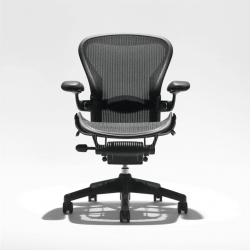 The Aeron Chair Portfolio, including new colourway Onyx Ultra Matte, and other product and packaging solutions will incorporate mismanaged plastic waste found near waterways as part of the company’s commitment to use 50 percent recycled content in all materials by 2030.
The Aeron Chair Portfolio, including new colourway Onyx Ultra Matte, and other product and packaging solutions will incorporate mismanaged plastic waste found near waterways as part of the company’s commitment to use 50 percent recycled content in all materials by 2030. 
 I’m a Luddite. This is not a hesitant confession, but a proud proclamation. I’m also a social scientist who studies how new technologies affect politics, economics and society. For me, Luddism is not a naïve feeling, but a considered position. And once you know what Luddism actually stands for, I’m willing to bet you will be one too — or at least much more sympathetic to the Luddite cause than you think.
I’m a Luddite. This is not a hesitant confession, but a proud proclamation. I’m also a social scientist who studies how new technologies affect politics, economics and society. For me, Luddism is not a naïve feeling, but a considered position. And once you know what Luddism actually stands for, I’m willing to bet you will be one too — or at least much more sympathetic to the Luddite cause than you think. 








October 13, 2021
Shift to hybrid working highlights the value of weak ties
by Mark Eltringham • Comment, Flexible working, Workplace design